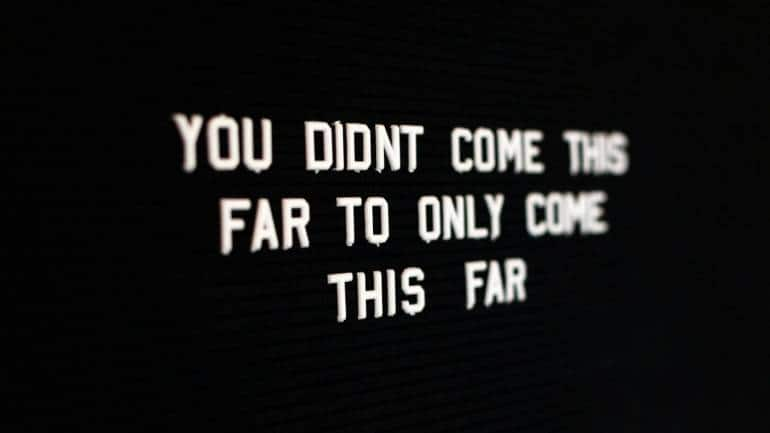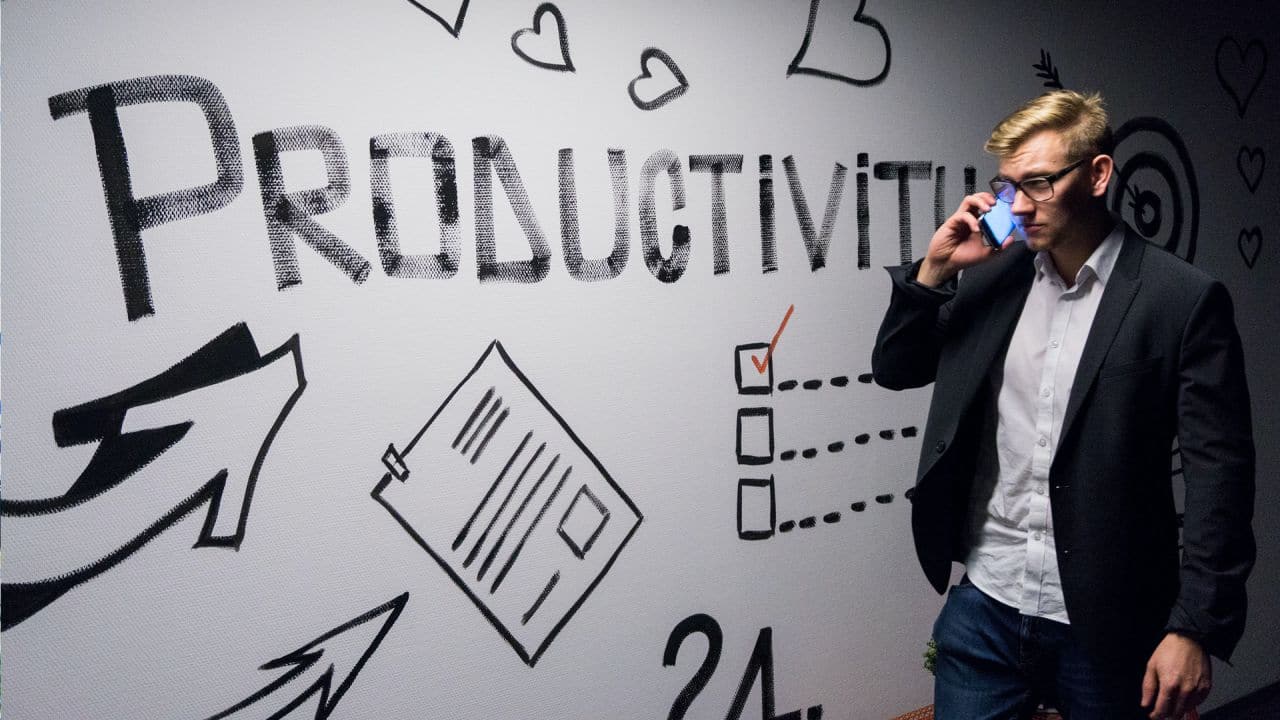
The Covid-19 pandemic has dramatically changed how we live and work.
Consider this: Since March 2020, many employees have not met their colleagues in a physical space. Stress, anxiety, and irritability, as well as uncertainty about the economy and job market have marred the last 18 months for most of us. Unstructured and erratic work-from-home schedules continue to turn daily routines upside down.
In this scenario, some corporates have found that conventional pathological psychotherapy has its limitations. Positive psychology is, instead, emerging as a more scalable solution to resolve work-related tensions across the board.
Rather than focusing on negative ideas such as illness, or even on assumption-based problem-solution models of thinking, many techniques in positive psychology focus on personal development—such as on career growth, relationships, communication, and identity. This means that such a practice has a wider reach for even those people whose issues don’t relate to biological illnesses or to pathological conditions, which is what traditional psychiatry focuses on.
Practiced through counsellors, guides, and trainers who have a foundation in psychological disciplines such as cognitive behavioural science and psychodynamics, but those who don’t practice traditional ‘therapy’, a whole fraternity of “leadership or life coaches” has evolved at the forefront of the mental healthcare industry.
These professionals work with corporates and organisations on the developmental growth of high-potential candidates, in order to help them break internal barriers and achieve their goals.
“Because there is a stigma attached to therapy, the first line of intervention in any therapeutic sense at the workplace happens a lot through the coaching space,” says Suparna Banerjee, a Gurgaon-based executive coach who is certified by ICF (the International Coach Federation) and works with corporate leaders.
Where coaching brings out the fundamental potential in the person’s life, therapy works at identifying and treating problems in a client.
“The coaching industry is picking up... primarily because people are not very forthcoming about therapy,” says Banerjee. “It’s become more aspirational today, because (coaching) is associated with leadership, positive psychology, and unlocking one's true potential, while traditional psychology stems from the disease model,” Banerjee adds.
 Representational image. Whereas coaching brings out the fundamental potential in the person’s life, therapy works at identifying and treating problems in a client.
Representational image. Whereas coaching brings out the fundamental potential in the person’s life, therapy works at identifying and treating problems in a client.
Life coaching
While there are many interpretations of positive psychology, it doesn’t mean that positive psychologists shun depression, anxiety, and stress as invalid or that they fail to acknowledge these conditions in someone. Being a coach is primarily about providing a neutral and empathetic space to the client in order to enable the person to heal and to grow more self-aware.
Mumbai-based coach Neha Gupta, founder of the consultancy Alchemy of Organization Development, for instance, combined a background in management and psychology to establish her base as a coach, helping senior leaders come to terms with multiple issues that they faced at work.
“Jungian psychology (the branch of psychology established by the psychiatrist Carl Jung), is one of the tenets to my work, but I also combine that with many other schools of thought and approaches. After completing my MBA and having worked in sales and marketing as well as the learning and developmental (L&D) sphere, I felt I needed to go much deeper and continue to study,” says Gupta, who practices multiple and interdisciplinary psychological techniques.
While a psychiatrist would typically have to hold an MBBS degree in addition to an MD in Psychiatry in order to practice in the field—and a counselling psychologist would have to hold a bachelor’s and master’s in any branch of psychology—coaches like Banerjee and Gupta come from interdisciplinary backgrounds that mix management degrees and MBAs with either psychology or training programmes in coaching.
“A lot of my work with leaders and organisations involves making the unconscious conscious,” explains Gupta, who trained as a coach with Erickson Coaching International in Delhi and as an Organisational Development practitioner with the Indian Society for Applied Behavioural Science (ISABS). “And that is what self-awareness is, that is what Jung says. If you don’t become aware of that unconscious part of you, it will guide your life and you will call it fate,” she says.
 While psychiatrists typically have an MD in psychiatry and a counselling psychologists, a master’s in any branch of psychology, life coaches come from interdisciplinary backgrounds with either psychology or training programmes in coaching.
While psychiatrists typically have an MD in psychiatry and a counselling psychologists, a master’s in any branch of psychology, life coaches come from interdisciplinary backgrounds with either psychology or training programmes in coaching.
Mixing techniques
“Through cognitive behavioural therapy, we aim to tackle a person’s core beliefs by providing them with a neutral, non-judgmental space,” says Ishita Gogia, counselling psychologist and cognitive behavioural therapist who is the founder of mental health organisation Zariyaaa in Delhi.
Leaders also need a safe and neutral space to be understood the most in these testing times, and a corporate coach can give them this space to understand things about themselves better, which they are unable to see for themselves.
“There is also very little empathy for leaders, who are mostly seen as oppressors or perpetuators,” says Neha Gupta.
Recently, Gupta helped a senior female leader understand some feedback about her behaviour that was coming from colleagues, something she couldn’t initially grasp.
“Her own self-conception was very, very different from the feedback she was receiving. I do a lot of things like shadow work with people to enhance self-awareness, and I did such shadow work with this female leader too. Doing so helps folks reclaim some of their rejected parts from the unconscious self,” explains Gupta.
Gupta adds that the concept of the Johari Window, named after its inventors Joseph Luft and Harry Ingham, divides personal self-awareness into four different quadrants: “open”, “hidden”, “blind”, and “unknown”.
“There are parts which you know about me, and there are parts that I know about myself. That is the open window,” explains Gupta.
“Then there are parts others see about me, but which I am not aware about. So, when you do self-awareness work and shadow work, you realise you are displaying a certain behaviour but were completely unaware about it,” she adds. Gupta worked on this aspect with the female leader. “Once she grew aware of her behaviour that others could see but she herself couldn't, an exceptional and transformational change occurred in the way she was showing up at work. A lot of her stress and angst went away,” says Gupta.
But this technique of purging shadows from the unconscious mind that Gupta follows, in order to change an individual’s self-perception and subsequently their behaviour, is actually at the intersection of many schools and techniques such as Jungian psychology as well as cognitive behavioural therapy (CBT), Freudian psychoanalysis, and holistic psychodynamics. What is thus emerging in mental health is a continental mix of approaches in order to drive results in clients struggling with work-related stress during the pandemic.
“We use a combination of techniques,” says Nitin Shah, founder of the Institute of Clinical Hypnosis and Related Sciences in Mumbai. “CBT is one of the major components of what we do. But we integrate that with mindfulness, hypnosis, meditative processes, humanistic approaches, and psychodynamics—and merge all of these with our own techniques and strategies to get results out of them,” adds Shah, who explains how they work at changing certain negative emotional associations affecting an underperforming person’s behaviour as well as tackle their thought processes at the time when they are in a situation where they are unable to perform.
 Representational image. Not just emerging talent, established leaders can also benefit from life coaching techniques like shadow work.
Representational image. Not just emerging talent, established leaders can also benefit from life coaching techniques like shadow work.
Coping with post-pandemic anxiety
“It’s the larger uncertainty of the situation right now, which is adding to anxiety for a lot of individuals,” says Mimansa Singh Tanwar, Clinical Psychologist at the Department of Mental Health and Behavioural Sciences at Fortis Healthcare in Delhi. “For this reason, it is very important to follow a routine and a schedule besides ensuring that you stay connected with colleagues,” says Tanwar.
Gogia’s approach at Zariyaaa, for instance, includes using several techniques that people can use in order to separate their own biased logic from a universal logic in order to tackle anxiety. “For instance, if a person is feeling worthless because they haven’t got a job or a placement, that stems from their biased logic. The universal logic is that there is a pandemic going on and that companies don’t have money to spend,” she says. “We help people to separate these two logics on a rational basis and help them to see how their biased logic about feeling worthless, for instance, is untrue,” she explains.
That is the reason why cognitive behavioural therapists and practitioners like Gogia, as well as coaches like Neha Gupta, use techniques from appreciative inquiry to look at what’s going well for someone rather than using a problem-solving approach to look at what is wrong.
“One of the things we teach clients to do is to self-acknowledge,” says Gogia, who used an exercise in writing down the entire day’s routine for a woman who was hurt by how her partner was pulling her down. “Writing down her routine made her realise how much she was actually doing all day for everyone. This is how clients realise that they have come a lot more far than they were willing to believe earlier,” she says.
 Representational image. Self-acknowledgement through somethings as simple as jotting down the day's routine can help employees see how far they've come.
Representational image. Self-acknowledgement through somethings as simple as jotting down the day's routine can help employees see how far they've come.
Tackling one’s inner demons
Yet, despite this movement, many therapists are mindful of toxic positivity. “I have never told any patient to be positive. It is very guilt-instigating. They start getting anxious and they start getting guilty,” says Gogia, who strongly believes that maintaining neutrality is key in terms of developing rationality in the client. And this is where the need for developing a neutral space with a coach emerges. “Undergoing the coaching process also means that one starts listening better,” says Suparna Banerjee.
And listening is not just between oneself and another person, but also between someone and their own self.
“Interference in listening is usually because there is an internal dialogue going on within us. Half the time, we are unable to listen to the other person because we are too busy in our own heads. So, one of the crucial parts of the work that we do in the coaching space is to get people to listen to themselves and develop a healthy relationship between the many voices playing within themselves,” says Suparna Banerjee.
Discover the latest Business News, Sensex, and Nifty updates. Obtain Personal Finance insights, tax queries, and expert opinions on Moneycontrol or download the Moneycontrol App to stay updated!